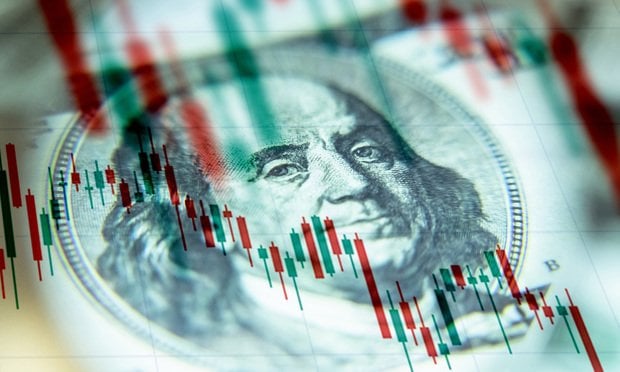SEAT PLEASANT, MD--Six months ago, Safeway informed Horning Brothers that it would be vacating the 40,000 square feet it occupied at Addison Plaza, a grocery-anchored shopping center in Seat Pleasant, MD, owned by the Washington DC-based developer and real estate owner.
Losing an anchor is never a pleasant event, but Horning Bros. recovered. It has just signed two leases with tenants totaling 30,000 square feet, or 75% of the space that Safeway is occupying until its departure next month.
Dollar Tree Fitness Evolution
“A Mini Grocery Store”
Roodberg freely admits losing a grocery store anchor, especially a Safeway, is disappointing, but the Dollar Store tenant will provide a good substitute. It is, he said, “much like a mini grocery store.”
Indeed, Dollar Tree CEO Bob Sasser said during the company's first quarter earnings call that it is expanding its frozen and refrigerated category. In the first quarter, the chain installed freezers and coolers in 118 additional Dollar Tree banner stores and plans to expand frozen and refrigerated products to 400 additional stores this year. It currently offers frozen and refrigerated product in 4,405 stores.
But can a Dollar Tree -- or any of the Dollar store brands -- actually substitute for Safeway?
Well no. Certainly not in terms of inventory. However, a case is forming that they can come close to a grocery anchor's traffic flows.
The dollar stores have done well in drawing traffic in large part because of their cut rate prices, especially in the recession and post-recession years.
But in recent quarters there has been more to their growth story than just low prices and expanding inventory.
Millennials Like the Dollar Stores
An intriguing trend about Dollar store shoppers was highlighted in the latest earnings call of Dollar General Corp., the second-largest dollar store chain after Dollar Tree.
CEO Todd Vasos told listeners that it is expanding its customers segments to include an older male middle income consumer and a Millennial female shopper.
He said (per a Fair Disclosure transcript):
The Millennial shopper is a segment that I was particularly excited to see emerge as a core consumer for DG, as this segment is so important to the future of retail and Dollar General.
Today, she represents about 12% of our shoppers and 24% of our sales. On average, she is shopping our stores about three times a month. One of her money-saving strategies is to utilize technology like our Dollar General digital coupon app to make lists, find deals, and save money. She wants healthy food items, and likes to be on the cutting edge and try new products. While national brands are important, she also trusts our private brands. She utilizes the entire DG store as a way to stretch her budget.
Reuters also picked up on this trend, noting that not only are Millennials are shopping the aisles at the dollar stores but so are the ones that make more than $100,000 a year.
According to NPD's Checkout Tracking, "of the millennials who shopped at Dollar General, Dollar Tree and Dollar Tree-owned Family Dollar stores, in the year ended April, about 29% earned over $100,000 a year and accounted for about a quarter of sales at these stores," Reuters wrote.
Millennial Varying Tastes
Of course let's get real here: Millennials and certainly the ones who make more than $100,000 a year are getting their groceries at other locations as well. As it happens, NPD has separately reported that while Millennials use grocery stores less than other generational groups, retail food-service -- namely in grocery stores -- is gaining traction with them.
Restaurant-quality and fresh food, chef-driven menus, in-store experiences have given rise to the Grocerant and inspiration to Millennials to visit and spend, according to a new NPD report, A Generational Study: The Evolution of Eating.
It wrote:
Many grocers now offer restaurant-quality food at a lower cost than full service or some fast casual restaurants, and specialty categories like Asian, seafood, Italian, Mexican, and barbeque. Grocery stores are aiming to cater to all dining needs, including hot, custom-prepared grilled meat, food bars, soups, and sushi. A growing number of grocery stores provide comfortable, casual seating for in-store dining and some a full-service restaurant.
So the lines are blurring in both directions, with grocery stores losing some shoppers on one end and gaining others at the other.
All of which is, pun intended, food for thought for shopping center owners that want, or think they want, a grocery for an anchor.
SEAT PLEASANT, MD--Six months ago, Safeway informed Horning Brothers that it would be vacating the 40,000 square feet it occupied at Addison Plaza, a grocery-anchored shopping center in Seat Pleasant, MD, owned by the Washington DC-based developer and real estate owner.
Losing an anchor is never a pleasant event, but Horning Bros. recovered. It has just signed two leases with tenants totaling 30,000 square feet, or 75% of the space that Safeway is occupying until its departure next month.
Want to continue reading?
Become a Free ALM Digital Reader.
Once you are an ALM Digital Member, you’ll receive:
- Breaking commercial real estate news and analysis, on-site and via our newsletters and custom alerts
- Educational webcasts, white papers, and ebooks from industry thought leaders
- Critical coverage of the property casualty insurance and financial advisory markets on our other ALM sites, PropertyCasualty360 and ThinkAdvisor
Already have an account? Sign In Now
*May exclude premium content© 2024 ALM Global, LLC, All Rights Reserved. Request academic re-use from www.copyright.com. All other uses, submit a request to [email protected]. For more information visit Asset & Logo Licensing.








